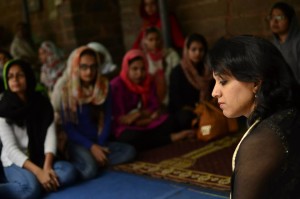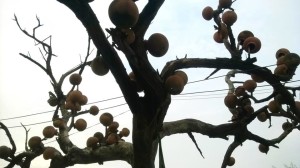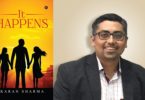Every city is a potpourri of stories, waiting to be discovered and told. And when that city is Delhi, a city with centuries of history behind it, the stories carry every flavor of human emotion in it. Bringing these stories to people is what Yuveka Singh of Darwesh wants to do. We spoke to her about her journey with stories and storytelling within the city of Djinns.
Tell us a little about Yuveka – the storyteller?
When I was 21, I started working with the NGO sector, joining an NGO in Calcutta who worked with children from difficult backgrounds. This is where I first realised and started using the power of storytelling, exploring mythology and old tales. Every story is perceived differently by each kid and each storyteller. During my stay there I was fascinated by Tarot and its archetypes. In my sessions, I integrated this interest with story making, asking children to pick archetypes and make up a story with it. The kids invariably picked out Devil cards, and the man in their story was invariably a devil. A practical demonstration of the theory of Carl Jung. This made me delve further to understand the children’s background.
Storytelling was an exploration for me. Initially I explored both the theoretical as well as experimental aspects of storytelling. I tried different courses in storytelling, but did not find what I was looking for.
[color-box color=” customcolorpicker=” rounded=false dropshadow=false]We wanted to go one step further than just tell stories, we wanted to let people “experience” the city. [/color-box]
What made you start Darwesh?
Darwesh was a visioning exercise for my own self, in order to gain focus. The city of Delhi brought me and the other storytellers together. We wanted to tell stories about the city of Delhi. We wanted to go one step further than just tell stories, we wanted to let people “experience” the city. So we brought in live performances, added local flavor with behrupiyas and did story-walks, exploring the stories hidden in the nooks and crannies of the city.
Tell us more about the audiences you work with at Darwesh.
Darwesh works with kids as well as older groups, though we largely concentrate on grown-ups. With kids we did a story-walk with a time travel theme, asked them to hold hands and turn around to reach another era; which would basically change the entire performance around them. But our target segment is not kids. With kids we can fulfill the creative urge, but the revenues do not come from there, sustenance and growth doesn’t come from there. It is the grown-ups which make up the majority of audiences. We’re also exploring on-demand events now.
How is conducting storytelling with an experiential walk different from telling a story in a room?
There is no green room, there might be questions after the walk and even in between. The performance is different at every different locations, the style and the narration has to be adopted on-the-go. It is in the open, so factors like voice modulation and volume become very important, as do external factors like surrounding noise. There are interruptions. Then there are other administrative issues, such as permissions to use the place, that need to be taken care of.
Do you feel storytelling is an art form whose practice should be restricted to a few?
We grew up hearing stories. Everybody can’t be impressionable, can’t be excellent, but with honing and skill development, storytelling can definitely be learnt. Storytelling goes beyond just reciting stories. If you are a professional storyteller, how are you contributing to the art of storytelling? How are you helping in giving it a structure?
[color-box color=” customcolorpicker=” rounded=false dropshadow=false]The storytellers are not up against each other, they are up against the capitalism.[/color-box]
Is there any particular incident/anecdote from your walks that you would like to share with readers?
One of the clients who came from Gurgaon for one of our Sufi walks, which is a 3 hour walk, walked up to us at the end and said, “now I know what I’m going to on weekends.” That for me was the biggest compliment. That also showed me who we are up against. The malls, pubs, parties in upmarket hangouts like Hauz Khas, that is who the real competitors are. The storytellers are not up against each other, they are up against the capitalism.
Do you plan to take Darwesh to other cities?
We want to perfect the model in Delhi first, then establish a customer base. If we manage to do that, and we are able to take the financial and time risk, then maybe yes. It also depends on the market pressure. We have, occasionally, tried to take people to lesser known places like Bisrakh.
Any suggestions to our readers on how they can help in keeping the tradition of storytelling?
Read more, listen more, and observe more. Keep the curiosity alive. That’s the beauty of storytelling. With practice everyone can become a storyteller, if only you are passionate enough.
About Darwesh:
Darwesh is a Delhi based startup that offers experiential walks in and around Delhi, uncovering the stories hidden in these places. Their theme based and customized offerings, including story-walks, performative journeys, employee engagement programs and educational programs, cater to a variety of audiences.
Don’t Miss: We love storytellers as much as we love storytelling. On Tell-a-Tale, we’ve featured a lot of talented storytellers, in the past.
Are you a Storyteller? If you’re a storyteller who is actively pursuing storytelling and would like to be featured in this column, drop us a mail at contact AT tell-a-tale.com or reach out to us via Facebook.






